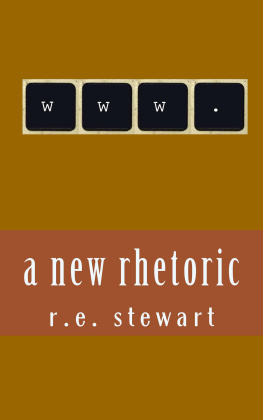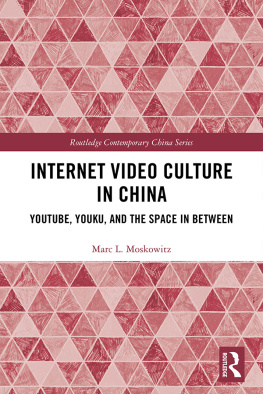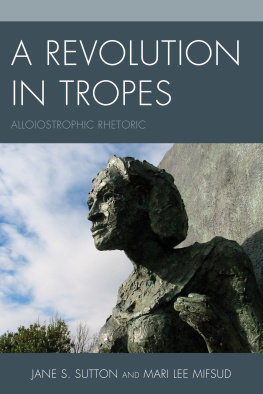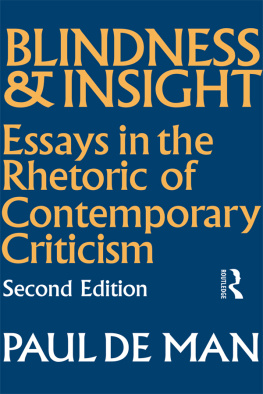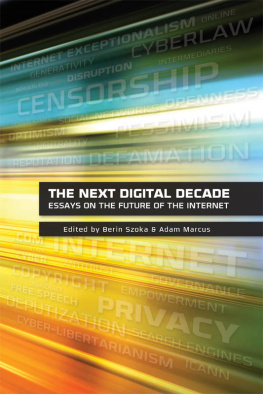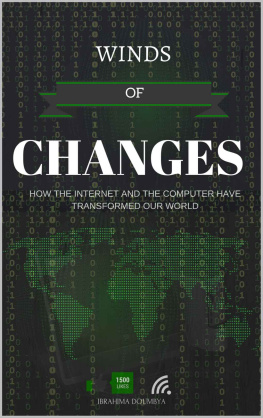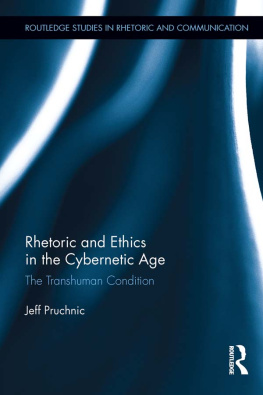A new rhetoric
Essays on using the internet to communicate
R.E. Stewart
Copyright
This Book first published in 2015.
Copyright R.E. Stewart 2015
R.E. Stewart asserts the moral right to be identified as the author of this work.
This Book is copyright material and must not be copied, reproduced, transferred, distributed, leased, licensed or publicly performed or used in any way except as specifically permitted in writing by the author, as allowed under terms and conditions under which it was purchased or as strictly permitted by copyright law. Any unauthorised distribution or use of this text may be a direct infringement of the authors rights and those responsible may be liable in law accordingly.
Contents
Introduction: the painted flourish
1. Power struggles in the kingdom of content
2. The web and the art of memory
3. Politics and the new rhetoric
Now to plain dealing. Lay these glozes by.
Shall we resolve to woo these girls of France?
- Loves Labour s Lost , William Shakespeare
Introduction
The painted flourish
I suffer for the truth, says the rustic Costard in Shakespeare's Love's Labour's Lost . In a kingdom which has, on pain of imprisonment, abjured all consort with the fairer sex, he has just been taken in manner and form with Jaquenetta, a country wench. The truth for which poor Costard suffers is double-edged: the fact of his offence, and the reality which the King's unrealistic laws debar. The punishment is swiftly commuted to a week on bran and water. And so this comical vignette contains and foreshadows the central problem which leaves more or less everyone in the play forsworn.
The status, not just the language, of Love's Labour's Lost is ambiguous. Outwardly, it is a comedy. The King of Navarre and three attending lords with-draw from the world and publicly mortify all bodily things, including the company of women. Instead they will steep their minds in the philosophical life of study, language and learning. But as soon as all of this is enshrined in law, it collides with a world all too inconveniently real. The King is straight away in a diplomatic tangle, when he recalls that the King of France's daughter with a retinue of ladies approaches, apparently to conduct a territorial negotiation.
The comic conceit of the play is almost contrived to place the polar forces of gender hand in hand, while making fun of high-minded hypocrisy. That, at least, is how a comedy might play out, and for much of its turns of wit and effusive language the audience, but for the play's title, is led to believe that it will end much as any other old play. But the abrupt, almost indifferently rude, news of a death in the final furlong and the stony, disbelieving silence that ensues, leaves us to digest the shock conclusion that Jack hath not Jill. We then begin to grasp that there is a hint of something tragic going on: scholarly renunciation only creates the conditions in which life too easily slips through your fingers.
If the Kingdom of Navarre takes flight from the world, it is clear from the play that it alights on the gushing air of too much tongue. Words run feral and untamed from one character to another, unable to take their cue from a well-judged circumstance and certainly incapable of well-judged silence. Love is no less a cue to which this language won't respond. Beauty, says the French princess, needs not the painted flourish of your praise. And to drive the point home, it is not bought by the base sale of chapmen's tongues. Biron, the dimly discerning voice of reason at the King's court, recognises this, albeit too late, and enjoins his peers to forswear their oaths as ultimately it is religion to be thus forsworn.
The language of persuasion rhetoric is, in the play, a farcically camped-up tragicomic dame, which is, for all its painted flourishes, eluded by reality. This, at its simplest, tells us that it is a poor form of rhetoric; that it does not persuade. True rhetoric starts from properly engaging with reality, from the nature of something that might admit persuasion. Spying this well-worn grain throughout the play, A.D Nuttall suggests that there is something ethical at work in Shakespeare's mind, and even proposes that he is scribbling guilt about his own intelligence:
He grasps the psychological truth that even if words are variously engaged with the extra-verbal world, we can, by a trick of the mind, focus on the formal expression and so lose full engagement, even while we are applauding our own cleverness. Of this he is ashamed.
The unifying thought, if not the carefully cropped argument, of these essays is that the current state of digital rhetoric, or digital communications, is similar to the problems of Shakespeare's play. The language of Love's Labour's Lost is, in the jargon, nominalist; words are true in name only, severed from any root in the real world. Digital communications might start from a different place, but are they any more real?
Most digital rhetoric, like the place of rhetoric in the play, sets out to persuade: it wants someone to cough up some cash for something, to read or watch something, to engage with something and give their view. So the focus of creating anything online usually crystallises around whatever the goal might be. The language, the design, the multimedia are instruments designed to capture the attention of users and channel them towards the intended goal. In the language of digital marketing, when this goal is achieved we call it a conversion. To sand it down to
its smoothest, digital rhetoric is, for the most part, practical.
The corollaries of this practical character have produced ever-changing rules or industry-standard guidance about how to communicate effectively. Such rules cover, variously, how to write a piece of text for the way people read in a web browser, the appropriate length for an online video, how to write headlines and introductory text given the different ways they might appear across digital networks, how to optimise web pages for search engines, how to plan and govern the creation of digital content and so on. Guidance and consultancy is now a considerable industry in its own right.
All of this might, at face value, look very different from the matters which lend dramatic tension to Love's Labour's Lost . But, to desecrate the richness of Shakespeare's language, a conversion in the plot of the play would, unlike its actual ending, see that Jack has his Jill. The play's protagonists do not convert their goal, because the language of persuasion is a character in its own right, one that does not render service to anyone or anything; it pirouettes to futile exhaustion. We might see similar painted flourishes online, but generally things tend to be more utilitarian: users want to do x so we will allow them to do it by designing y. This might be less florid, but it doesnt make it any more human. Just as the laborious language of love cannot sit still long enough to observe and celebrate the object of its admiration, digital rhetoric defaults to a mechanical habit of thought which more or less blindly ignores the fact that people are more than brains in jars who want to maximise their choices.
I have given the user experience more than a few mentions in what follows, not because I claim to explore or illuminate it in fresh new ways. My knowledge of it - and user-centred design - is based on practical knowledge of managing digital content. I have held, at the most, a sort of dilettantish VIP ticket which has allowed me to see the professionals at work. But, with that caveat, the user experience seems to me to reflect a critical change and new momentum in the development of digital communications.
The history runs something like this: in the beginning there were websites built by people who understood the newfangled technologies that made them possible. People who used the websites struggled, so, in much the same way that in the early days of film the studios screen-tested daily footage, we started to put models in front of people and tested how easy or difficult they found them to use. Out of such usability testing came a startling revelation: people don't stop behaving like human beings when you ask them to operate a computer; they respond not just rationally but emotionally . So the goal when designing websites or online applications has since become to create a pleasurable, even desirable, all round experience.
Next page
